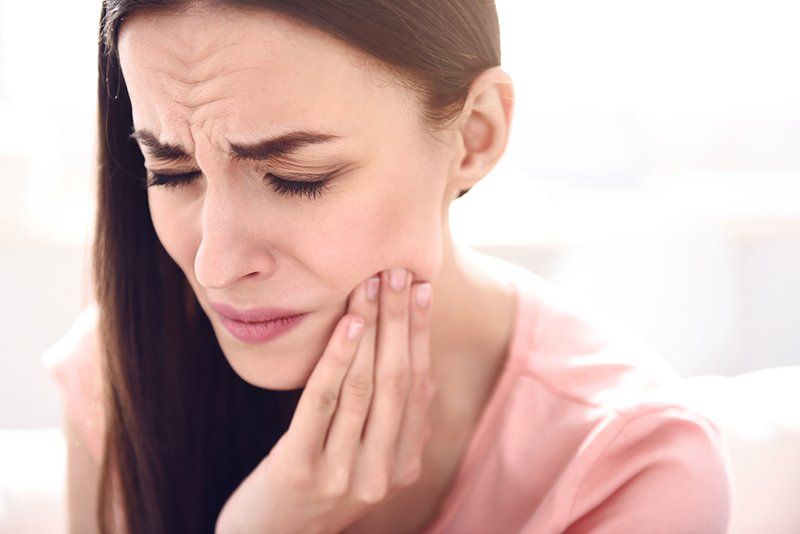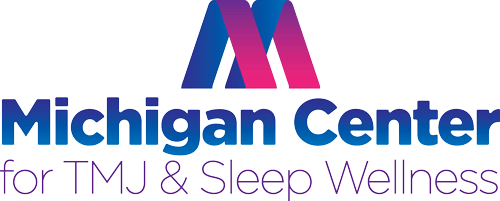Is the Coronavirus Pandemic Triggering Your TMJ Pain?
Dr. Jeffrey Haddad D.D.S. • April 14, 2020
In the face of the widespread illness and economic fallout related to the novel coronavirus pandemic, people often feel they need to put aside other concerns. However, it’s still important to try to take care of yourself if you can. This includes treating your TMJ (temporomandibular joint) pain.
Unfortunately, we know that for many people, TMJ pain is increasing now. The good news is that emergency TMJ treatment
is available, and most people can experience relief quickly.
TMJ Pain Is Not a Likely COVID-19 Symptom
One of the questions we are getting a lot these days is, “Is TMJ pain a symptom of COVID-19?” Possibly, but not likely.
COVID-19 includes many of the symptoms of typical flu-like illnesses, which includes general body aches and pains. However, unlike most flus, these aches and pains tend to be transitory. You might experience them for a couple of days, but then they pass. Lingering TMJ pain is unlikely a symptom of COVID-19.
A possible exception is if you develop a COVID-19 cough. A serious cough can often trigger TMJ pain. That’s because of the repeated muscle actions and jolts of the joint. In this case, discomfort will likely wane and resolve once your cough diminishes.
Stress Could Spike Your TMJ Symptoms
However, many people could be experiencing more TMJ pain because of a side effect of the pandemic: stress.
Stress levels are high across the country, as we all face an illness that will claim an untold number of lives, and make millions more sick. In addition, many of us face being laid off or having reduced hours and/or wages.
And for those lucky enough to be able to work from home, there are the challenges of actually doing it. You have to figure out how to conduct meetings, access data, and manage your normal workflow in a completely different context. And you might also have a spouse and kids home now who interfere with your workday.
When we feel stress, many of us respond by clenching and/or grinding our teeth. You might be clenching your teeth during the day or perhaps you do it at night while you’re asleep. Known as bruxism, this behavior stresses the jaw joints and muscles. This can trigger TMJ pain and other related symptoms.
TMJ/TMD Symptoms to Watch for
If you suspect your temporomandibular joint disorder, called either TMJ or TMD is worsening because of pandemic-related stress, we can help.
In addition to jaw pain, you might experience symptoms such as:
- Headaches
- Jaw clicking and popping
- Irregular or restricted jaw movement
- Toothaches
- Earaches
- Ringing in the ears (tinnitus)
- Neck pain
- Face pain
- Back pain
- Tingling or numbness in fingers
Not everyone with TMJ experiences all of the symptoms, but most people experience more than one.
The good news is that just as one condition causes all these symptoms, one treatment can resolve them. And you can experience results quickly. Most people experience some degree of relief immediately, with full relief coming within weeks.
Do You Need Emergency TMJ Treatment in Detroit?
If you are experiencing a surge in TMJ pain related to pandemic stress, we can help. The Michigan Center for TMJ & Sleep Wellness in Troy, MI serves the greater Detroit area, and we are seeing patients who need urgent relief from jaw pain or dysfunction.
Please call (248) 480-0085
today for an appointment with TMJ dentist
Dr. Jeffrey S. Haddad. We also offer free virtual consultation so you can get information about your condition without leaving home.

For many people, TMJ is a transitory condition, one that doesn’t require professional treatment. For these people, TMJ is often related to stress. In these cases, managing stress can help get TMJ under control. Here are some basic stress management techniques that may be able to help you if you think stress is causing or [...]
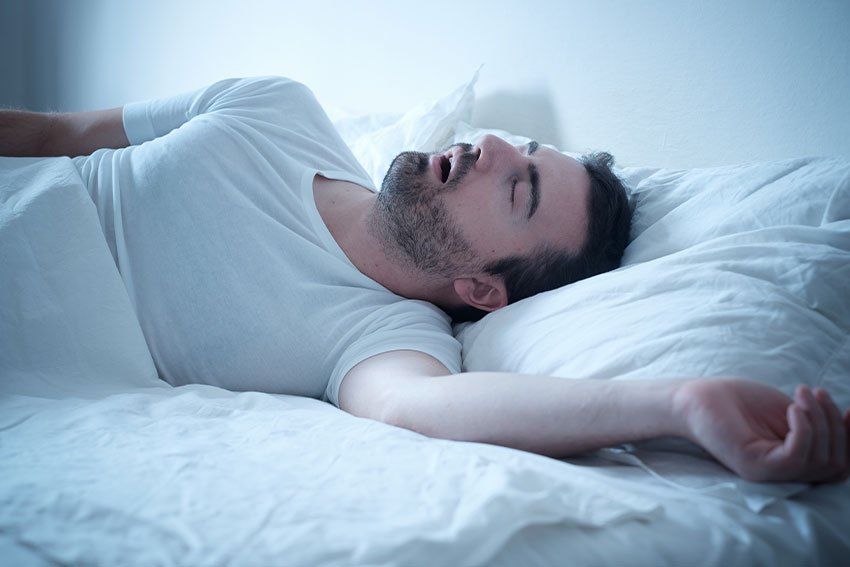
Stroke is one of the deadliest complications of sleep apnea . People with sleep apnea are more likely to experience a stroke, but the risks don’t actually end there. Actually, in some ways, the risks go up for people with sleep apnea after their first stroke. That’s because even if they survive their first stroke, sleep apnea can increase their risk of additional strokes. And, according to a new study, sleep apnea can also increase a person’s risk for another complication: post-stroke depression. Doctors need to increase screening for sleep apnea in people at high stroke risk. However, they also need to make sure that all people are screened for sleep apnea following a stroke. Treating sleep apnea at this time can improve a person’s chance of recovery.
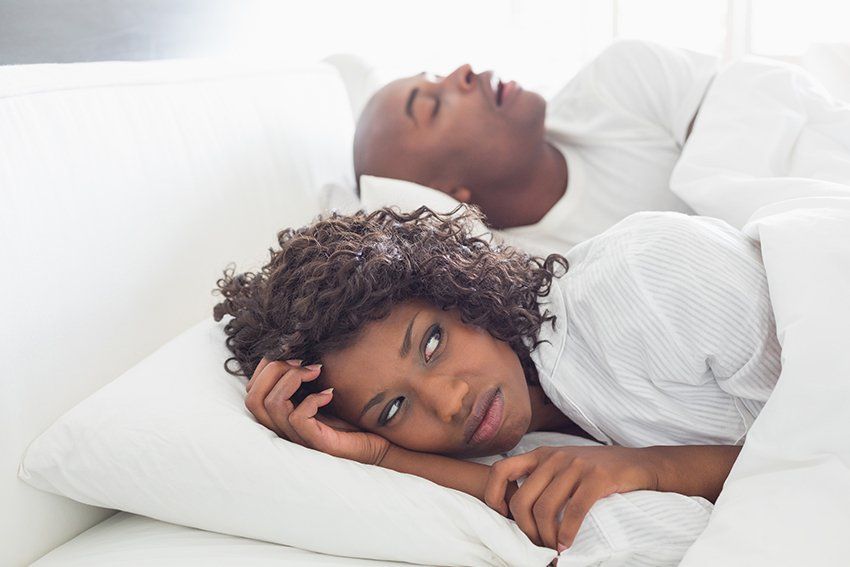
One of the major problems with snoring is that it is a problem not just for the snorer, but for everyone who sleeps around them. If you are a snorer, you’ve probably experienced your spouse’s complaints about the loud, disturbing noises you make all night. But maybe you haven’t acted on those complaints yet. Guess [...]

We all know that it’s important to get enough sleep. But how much sleep is that, exactly? Fortunately, there are several recommendations for the amount of sleep people need. Following these recommendations can help you get the right amount of sleep. Here’s a guide to getting the right amount of sleep at any age.

One of the biggest problems with sleep apnea is that it is so underdiagnosed. Perhaps 80% of people with the condition don’t know they have it.
If they don’t know they have it, they can’t get it treated, and instead continue to suffer all the serious health effects of the condition. Often, they don’t know they have sleep apnea until a major complication, such as a car accident or heart attack, leads them or their doctor to start asking the right questions.
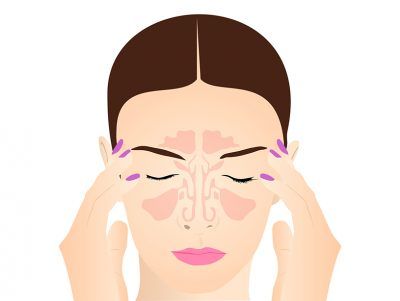
Inflammation is a sign of a body in stress. It is part of the body’s healing response to injury, and it occurs in response to infection. It also occurs when the body is experiencing stress related to hypopnea episodes during . We know that people with sleep apnea experience high levels of inflammation. It’s [...]

New research suggests that women with severe may be much more likely to experience complications during pregnancy and childbirth. Although the study couldn’t link migraines or their treatment to the complications explicitly, it does remind us that alternate treatments for migraine might be good during pregnancy. is a drug-free approach that [...]

As a U of M alum, Dr. Jeffrey S. Haddad still follows the teams of his alma mater. And while he is more apt to cheer for the Wolverines on the gridiron, he does love to watch some basketball, as well, especially around tourney time. And while Michigan probably isn’t going to make it into the Big Dance this year, they’ve at least discovered one thing that might have been holding them back: sleep apnea . Michigan player Brandon Johns was recently diagnosed with sleep apnea, and since he’s started treatment, his quality of play has improved dramatically. If this continues, he could be a real force and help to energize next year’s team for an appearance in the tournament. As a sophomore, he has a long time to mature, and with this major obstacle overcome, he will be able to achieve his full measure of greatness.

